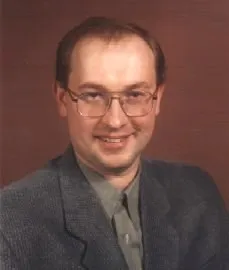A General Formula for Compound Channel Capacity
Sergey Loyka
School of Electrical Engineering and Computer Science
University of Ottawa
Abstract:
A general formula for the capacity of arbitrary compound channels, which are not necessarily ergodic, stationary or information-stable and where the channel state set is arbitrary, is obtained using the information density approach. A direct (constructive) proof is given. To prove achievability, we generalize Feinstein Lemma to the compound channel setting, and to prove converse, we generalize Verdu-Han Lemma to the same compound setting. This extends the general formula for channel capacity of Verdu and Han to arbitrary compound channels (not necessarily finite-state or countable). When compound channel is uniform, the general formula reduces to the familiar sup−inf expression. The compound inf-information rate plays a prominent role in the general formula. Its properties are studied and a link between information-unstable and information-stable regimes of a compound channel is established, resulting in sufficient and necessary conditions for the strong converse to hold. The results are extended to include epsilon-capacity of compound channels. Some flaws in the known results are pointed out.
Biography:
Sergey Loyka was born in Minsk, Belarus. He received the Ph.D. degree in Radio Engineering from the Belorussian State University of Informatics and Radioelectronics (BSUIR), Minsk, Belarus in 1995 and the M.S. degree with honors from Minsk Radioengineering Institute, Minsk, Belarus in 1992. Since 2001 he has been a faculty member at the School of Electrical Engineering and Computer Science, University of Ottawa, Canada. Prior to that, he was a research fellow in the Laboratory of Communications and Integrated Microelectronics (LACIME) of Ecole de Technologie Superieure, Montreal, Canada; a senior scientist at the Electromagnetic Compatibility Laboratory of BSUIR, Belarus; an invited scientist at the Laboratory of Electromagnetism and Acoustic (LEMA), Swiss Federal Institute of Technology, Lausanne, Switzerland. His research areas are communication/information theory, wireless communications and networks and, in particular, MIMO systems and security aspects of such systems, in which he has published extensively. He received a number of awards from the URSI, the IEEE, the Swiss, Belarus and former USSR governments, and the Soros Foundation.
